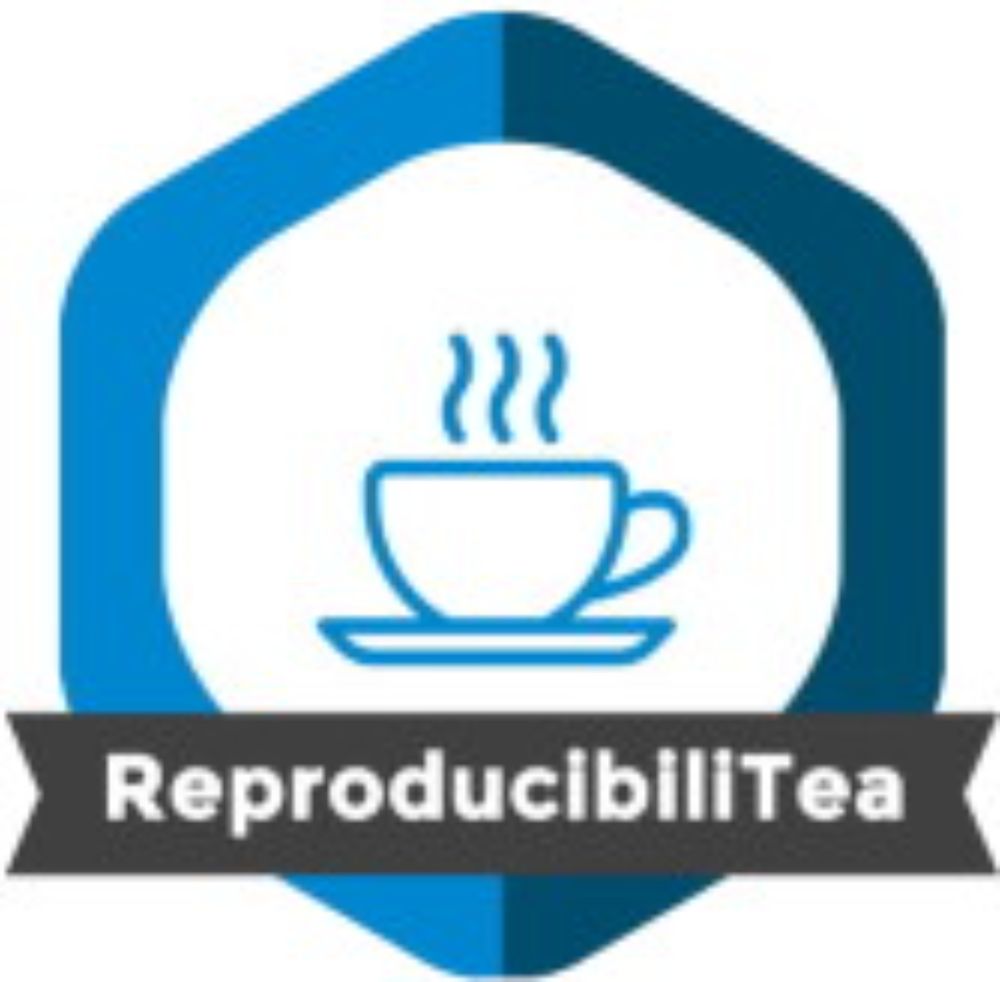Find out more on our website: https://reproducibilitea.org/
Check out our podcast: https://soundcloud.com/reproducibilitea

youtu.be/sdRRafephyM?...
The event was organised by ReproducibiliTea UniBasel @swissrn.bsky.social

youtu.be/sdRRafephyM?...
The event was organised by ReproducibiliTea UniBasel @swissrn.bsky.social
We are delighted to welcome Prof. Stephan Rixen, a law professor from the University of Cologne for a special […]
[Original post on fediscience.org]

We are delighted to welcome Prof. Stephan Rixen, a law professor from the University of Cologne for a special […]
[Original post on fediscience.org]

Please attend me to novels which you believe to belong to this list, but are not yet included.

Please attend me to novels which you believe to belong to this list, but are not yet included.
youtu.be/qNJ8xqaObR8?...
The event was organised by ReproducibiliTea UniBasel

youtu.be/qNJ8xqaObR8?...
The event was organised by ReproducibiliTea UniBasel
We will be hosting a mentor-mentee lunch during the conference. Sign up, and you will be matched to another academic based on shared research interests!
Don't miss out! See you there 🙌

We will be hosting a mentor-mentee lunch during the conference. Sign up, and you will be matched to another academic based on shared research interests!
Don't miss out! See you there 🙌

In our article "Recalibrating academic expertise
in the age of generative AI", Zhicheng Lin and I discuss how an over-reliance on generative AI in academia may erode key skills of scientific enquiry.
Out now in @cp-patterns.bsky.social, read it below! 👇
tinyurl.com/py38vnvb

In our article "Recalibrating academic expertise
in the age of generative AI", Zhicheng Lin and I discuss how an over-reliance on generative AI in academia may erode key skills of scientific enquiry.
Out now in @cp-patterns.bsky.social, read it below! 👇
tinyurl.com/py38vnvb
#Africa #Research #HIndex #WCRI2026 #WCRI
theconversation.com/measures-of-...

Find the program here: www.ror-event.ch
Find the program here: www.ror-event.ch
🔗 doi.org/10.31222/osf...
Our aim is to equip you as early career researchers with the tools needed to lead grassroots change in research culture.
#reproducibility #openresearch #openscience #metasci #academicsky

🔗 doi.org/10.31222/osf...
Our aim is to equip you as early career researchers with the tools needed to lead grassroots change in research culture.
#reproducibility #openresearch #openscience #metasci #academicsky

Join us to find out from Dr Daryl Lee at the next ReproducibiliTea! 🫖
📅 Jan 13th, 3pm GMT
www.eventbrite.co.uk/e/evaluating...
@tabeasch.bsky.social @uclopenscience.bsky.social @uclpals.bsky.social @reproducibilitea.org @ukrepro.bsky.social
Join us to find out from Dr Daryl Lee at the next ReproducibiliTea! 🫖
📅 Jan 13th, 3pm GMT
www.eventbrite.co.uk/e/evaluating...
@tabeasch.bsky.social @uclopenscience.bsky.social @uclpals.bsky.social @reproducibilitea.org @ukrepro.bsky.social
🔗 doi.org/10.31222/osf...
Our aim is to equip you as early career researchers with the tools needed to lead grassroots change in research culture.
#reproducibility #openresearch #openscience #metasci #academicsky

🔗 doi.org/10.31222/osf...
Our aim is to equip you as early career researchers with the tools needed to lead grassroots change in research culture.
#reproducibility #openresearch #openscience #metasci #academicsky
reproducibilitea.org/jc/2025/12/2...
In this blog post, we summarise our activities in 2025 ✨

reproducibilitea.org/jc/2025/12/2...
In this blog post, we summarise our activities in 2025 ✨
SIPS 2026 is an action-oriented meeting aimed at improving psychological science.
The conference sessions will focus on:
✨Initiating and conducting projects,
✨Learning new skills,
✨Discussing new ideas.

SIPS 2026 is an action-oriented meeting aimed at improving psychological science.
The conference sessions will focus on:
✨Initiating and conducting projects,
✨Learning new skills,
✨Discussing new ideas.
📝 Evaluate submitted manuscripts
🔍 Select and invite reviewers
🤝 Receive mentorship across five APS journals
💵 US $1,000 stipend
Learn more & apply by February 6 www.psychologicalscience.org/publications...

📝 Evaluate submitted manuscripts
🔍 Select and invite reviewers
🤝 Receive mentorship across five APS journals
💵 US $1,000 stipend
Learn more & apply by February 6 www.psychologicalscience.org/publications...
reproducibilitea.org/jc/2025/12/2...
In this blog post, we summarise our activities in 2025 ✨

reproducibilitea.org/jc/2025/12/2...
In this blog post, we summarise our activities in 2025 ✨
We got you covered! With @clarekelly.bsky.social @eikofried.bsky.social Anna van 't Veer
📝 rdcu.be/eXja4

We got you covered! With @clarekelly.bsky.social @eikofried.bsky.social Anna van 't Veer
📝 rdcu.be/eXja4
Happy new year! ✨
Thoughts: Starting the year with a resource to make you more cynical in 2026.
#QRPs #phacking #metascience #research #ethics
journals.sagepub.com/doi/10.1177/...

Happy new year! ✨
Thoughts: Starting the year with a resource to make you more cynical in 2026.
#QRPs #phacking #metascience #research #ethics
journals.sagepub.com/doi/10.1177/...
Check out our calendar for more details:
reproducibilitea.org/calendar
#OpenResearch #OpenScience #metasci #academicsky

Check out our calendar for more details:
reproducibilitea.org/calendar
#OpenResearch #OpenScience #metasci #academicsky
First up, 2016 talk by Prof. Susan Haack, titled: “Science, Yes; Scientism, No”
www.youtube.com/watch?v=5Be6... 1/🧵

First up, 2016 talk by Prof. Susan Haack, titled: “Science, Yes; Scientism, No”
www.youtube.com/watch?v=5Be6... 1/🧵

